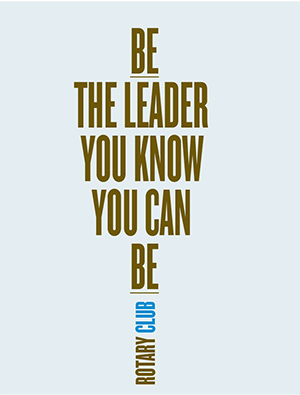Universities are facing a lot of questions these days. How do we ensure at-risk students graduate? How do we prepare students for the workplace and connect them with employers? How do we build meaningful ties with the community beyond campus? The list goes on.
Answering these questions requires vision, innovation and experimentation. But, then again, sometimes the answers are right under our noses. I have spent many years as a participant in, and as an executive member and founder of, various campus clubs. This experience, and my own study of campus clubs, leads me to believe that they are already a part of the solution, if only we could tap into them better.
 My research indicates that, in the 2013-14 academic year, there were just under 7,500 clubs on university campuses across Canada. Almost every campus, big or small, urban or rural, offers its students at least some opportunities to participate. Campus clubs are largely overseen by student unions and the level of oversight, support, training and funding differs tremendously from campus to campus. Many student unions have allowed their system of clubs to grow haphazardly without much central planning or coordination.
My research indicates that, in the 2013-14 academic year, there were just under 7,500 clubs on university campuses across Canada. Almost every campus, big or small, urban or rural, offers its students at least some opportunities to participate. Campus clubs are largely overseen by student unions and the level of oversight, support, training and funding differs tremendously from campus to campus. Many student unions have allowed their system of clubs to grow haphazardly without much central planning or coordination.
There seems to be no Canadian literature on the topic and it is unclear if universities keep any data on campus clubs. However, studies from the U.S., England and elsewhere suggest that campus clubs can contribute to the academic success of all participating students and especially those from certain at-risk groups, such as indigenous and international students.
Club participation also encourages cross-cultural and cross-racial interactions between members
A mix of both small-scale qualitative and large-scale quantitative studies have concluded that participation in all kinds of campus clubs is correlated with success factors like improved critical thinking, personal development, academic and affective growth, leadership skills and ultimately postsecondary persistence. Club participation also encourages crosscultural and cross-racial interactions between members. This improves members’ knowledge and awareness of diversity and social justice issues.
To give just a couple of examples, in a 2007 study in the Journal of College Student Development, American researchers Shaun Harper and Stephen Quaye found that campus clubs offered black students at predominantly white universities an opportunity both to develop their identity and to engage in cross-racial dialogue, a space of growing importance given rising racial tensions. In a 2003 study in the same journal, authored by Aaron Jackson, Steven Smith and Curtis Hill, Native American students expressed the importance of Native American clubs for creating a sense of belonging and a network of support.
 These findings aren’t particularly surprising. After all, clubs are just semi-structured, semi-spontaneous regular gatherings of people who may come from diverse backgrounds but share some common interest. These would-be strangers are likely facing or have already faced similar problems adjusting to the new realities of university life. It is not surprising these clubs end up providing members with emotional and intellectual support.
These findings aren’t particularly surprising. After all, clubs are just semi-structured, semi-spontaneous regular gatherings of people who may come from diverse backgrounds but share some common interest. These would-be strangers are likely facing or have already faced similar problems adjusting to the new realities of university life. It is not surprising these clubs end up providing members with emotional and intellectual support.
Like graffiti on bathroom stalls, campus clubs are a common feature of the university landscape. Their friendly, if pushy, volunteers handing out leaflets or peddling home-baked wares for this cause or that are such a fixture of campus life that they’ve become part of the background. So it may not occur to anyone to think of them, for instance, as Canada’s largest incubator.
In a campus club, students face multiple challenges
Think about it: If you have some idea about how to make campus life better, you just need to round up a sufficient number of signatures (anywhere from, say, five to 25), and you will be given access to space, funding, training opportunities and more. Of course, starting the club is the easy part. You then have to hold meetings, develop programming (e.g. events, fundraisers, conferences, movie nights, etc.), maintain an engaged membership, budget and manage funds, keep records, and so on. You’ll have to quickly learn almost everything you’d have to do if you wanted to start your own organization outside of university.
 One reason we might not think of clubs as incubators is because the one thing that clubs are absolutely not supposed to teach is how to make a profit, since they are prohibited from doing so. But, then again, Canada’s non-profit sector, accounting for roughly $106 billion in economic activity annually (8.1 percent of GDP), is larger than both the automotive and manufacturing industries.
One reason we might not think of clubs as incubators is because the one thing that clubs are absolutely not supposed to teach is how to make a profit, since they are prohibited from doing so. But, then again, Canada’s non-profit sector, accounting for roughly $106 billion in economic activity annually (8.1 percent of GDP), is larger than both the automotive and manufacturing industries.
Terminology aside, campus clubs offer participants a profound and subtle learning experience outside the classroom. In a campus club, students face multiple challenges. People aren’t showing up to meetings on time. The mandate needs to be written. The venue doesn’t provide sound equipment. Students may have never filled out a grant application before. Either they figure out the answer or else the club, their club, flounders. When students finally come to an answer, they internalize it for the next time. As Confucius put it, “I hear and I forget. I see and I remember. I do and I understand.”
 What’s more, because clubs may experience significant turnover among members due to graduation, or simply because of changed priorities over the summer, this learning has to happen every one or two years. Many organizations bill themselves as learning organizations, but, because of the pace of turnover, campus clubs have to fundamentally be learning organizations, always concerned with learning and relearning a wide array of skills required for the organization to survive from year to year.
What’s more, because clubs may experience significant turnover among members due to graduation, or simply because of changed priorities over the summer, this learning has to happen every one or two years. Many organizations bill themselves as learning organizations, but, because of the pace of turnover, campus clubs have to fundamentally be learning organizations, always concerned with learning and relearning a wide array of skills required for the organization to survive from year to year.
These skills, whether learned willingly or by necessity, prepare students for a huge range of careers, from event planning and human resources management to policy and advocacy work, to name just a few. Universities are also increasingly being pressured to do more to prepare students for the workplace via career-resource centres, co-op programs and internships. These are vital, but work-integrated learning opportunities are often limited to certain academic programs and can be difficult and expensive to scale up. Campus clubs, on the other hand, are available to every single student and, in most cases, are primarily funded by students’ dues and overseen by student unions, thereby significantly lessening the burden on university administration.
How do clubs connect students with careers?
Many clubs are chapters of existing off-campus, non-profit organizations like the Red Cross, Amnesty International, Plan International Canada, Equal Voice, and service clubs like Enactus and Rotary International. These organizations are often struggling to find and attract new leadership and to bridge generational divides. Of course, one could simply volunteer at the organization, but there are some crucial advantages campus clubs have over traditional off-campus volunteering.
 The most important of these advantages is that campus clubs present students with low-risk opportunities to take on leadership positions that likely would not be available to them as volunteers in outside organizations. This gives students more ownership over their work, allows them more autonomy and flexibility, as well as responsibility for getting things done.
The most important of these advantages is that campus clubs present students with low-risk opportunities to take on leadership positions that likely would not be available to them as volunteers in outside organizations. This gives students more ownership over their work, allows them more autonomy and flexibility, as well as responsibility for getting things done.
Clubs also provide non-profit organizations with greater capacity, a recruitment pool and access to university infrastructure and resources. If more non-profit organizations took advantage of this opportunity, universities would come to play an increasingly central role in the communities they inhabit.
While a lot of this kind of interaction already goes on, it is mostly ad hoc, depending on the interest and initiative of particular students approaching off-campus organizations or vice versa. While this sort of initiative is at the heart of what makes campus clubs what they are, it does not always foster efficient results. Universities have an opportunity here to take on a much more intentional role in facilitating these relationships without crushing that core spontaneity.
Clubs are worthy of study for more than just practical reasons
Whether or not a university explicitly considers it, many decisions it makes will directly or indirectly affect the success of campus clubs. For instance, if universities included clubs in campus tours and other student recruitment activities, they could get an early start with the next cohort of incoming students. Getting the relationship right will take a concerted effort based on a careful assessment of clubs’ individual and collective needs.
 But clubs are worthy of study for more than just practical reasons. Campus clubs also offer rich, almost completely untouched, ground to researchers in many faculties. Are you a civil society researcher? Campus clubs exhibit features of both grassroots associations and non-profit organizations, challenging current typologies. Do you study science communications? Many science and environment clubs offer a unique approach. Interested in religious identities? Involvement in Canada’s spiritual clubs can have a life-changing effect on participants. Want to know about organizational behaviour and leadership? Simple changes like assigning titles can have noticeable effects on member behaviours. The list of subject areas to which the study of campus clubs might make a meaningful contribution goes on and on – and you don’t even have to leave campus to reach your subjects.
But clubs are worthy of study for more than just practical reasons. Campus clubs also offer rich, almost completely untouched, ground to researchers in many faculties. Are you a civil society researcher? Campus clubs exhibit features of both grassroots associations and non-profit organizations, challenging current typologies. Do you study science communications? Many science and environment clubs offer a unique approach. Interested in religious identities? Involvement in Canada’s spiritual clubs can have a life-changing effect on participants. Want to know about organizational behaviour and leadership? Simple changes like assigning titles can have noticeable effects on member behaviours. The list of subject areas to which the study of campus clubs might make a meaningful contribution goes on and on – and you don’t even have to leave campus to reach your subjects.
Campus clubs, at their best, really do live up to the portrait just painted. However, anyone who has ever been a member of a club may have as many negative memories of frustrating inefficiencies and lack of focus as they have positive memories of productive outcomes and real impact. There are relatively few resources, forums and publications to ensure clubs are able to function at their best.
 Universities and the non-profit sector more broadly have an opportunity to come together here and make the most of clubs. Universities can partner with non-profit groups like Imagine Canada to publically recognize the contribution and the potential of campus clubs. Universities can create opportunities for students, administrators and the non-profit sector to come together and share best practices, whether that be through a conference, an online forum or a simple email newsletter.
Universities and the non-profit sector more broadly have an opportunity to come together here and make the most of clubs. Universities can partner with non-profit groups like Imagine Canada to publically recognize the contribution and the potential of campus clubs. Universities can create opportunities for students, administrators and the non-profit sector to come together and share best practices, whether that be through a conference, an online forum or a simple email newsletter.
It is crucial to learn from the universities and student unions who have made it a priority to get the most out of their clubs. Two good examples are the University of British Columbia and University of Toronto. In the case of UBC, clubs have considerable financial accountability and oversight expectations. In the case of U of T, through its ULife, the university has invested in significant online infrastructure that acts as an important co-ordination and recruitment tool for clubs.
Most importantly, whatever comes next, Canadian data will be necessary to get it right. Universities and academics from all kinds of disciplines should begin to study campus clubs. At the very least, travel costs will be low.
Benjamin Miller is a law student at the University of Toronto. He is a long-time campus club organizer and community radio host.

Thanks for your insights, Benjamin! I’m so lucky to be able to witness firsthand how valuable student clubs are, both to a school’s community and to individuals. Social capital, or the the relationships and networks within a community, is one of the most important assets any society or community has. Voluntary organizations like clubs foster these networks especially well. Student clubs are the perfect training ground for building skills like leadership, event planning, budgeting, and member engagement, but they’re not just for over-achieving keeners! They’re there for students who have trouble with public speaking or making friends, for students who know a lot or a little about certain issues or industries. Once people get participating in their community, they become more engaged in their studies and careers. They create value both through their contributions, and within themselves by enriching their own experience. Everyone benefits!
Amy Smith, Club Program Coordinator at the BCIT Student Association
Agreed on all points. Well said.
Would be happy to chat with you on this topic. I’ve spent a good portion of the last decade working very closely with student clubs. Would be interested in learning more about your research. Great article.